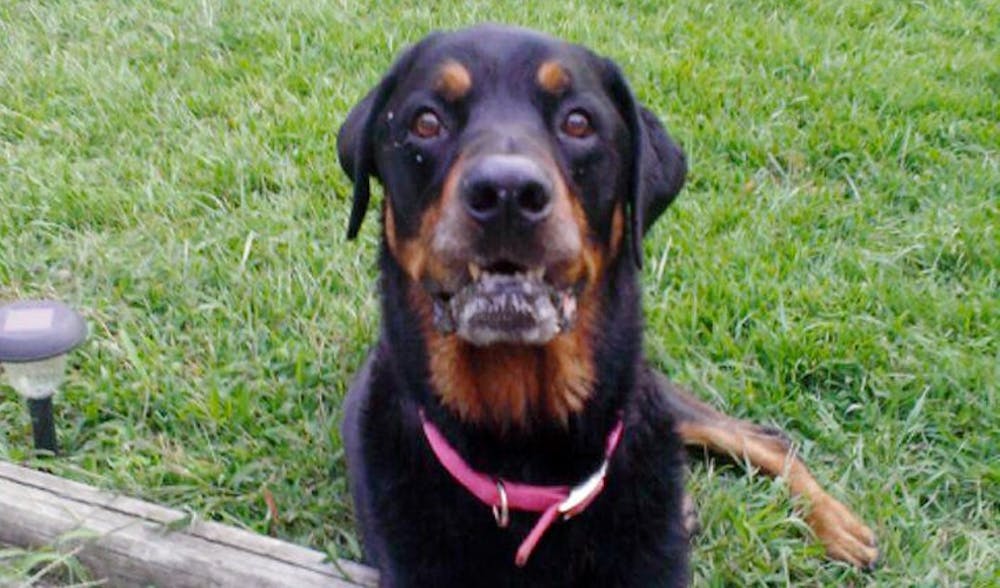Bruce E. Barshay is upset that he can only sue Penn for $6,500, after his dog died from what he claims was improper treatment by doctors from the School of Veterinary Medicine .
“Any financial and reputational damage I can do, I will do to them,” Barshay said in an interview. “If this were to be about a human, I would ask for $10 million. But because this is about a dog, that is all I can ask for.”
According to the complaint Barshay filed on Nov. 17 , he is seeking damages for ethical and medical negligence on the part of Penn’s Matthew J. Ryan Veterinary Hospital for contributing to the premature death of his dog . The $6,500 Barshay is asking for from Penn would compensate him for the veterinary bills related to the treatment of his dog, Harley .
Barshay, who is representing himself, said he chose not to hire a lawyer because the cost of hiring one would far outweigh the damages he could get. A University spokesman declined to comment on the case, citing Penn’s policy not to comment on ongoing litigation.
In August 2013 , Barshay brought his dog Harley to a local veterinarian because Harley had trouble defecating, according to the complaint. The local veterinarian wasn’t sure why Harley was having problems and referred Barshay to Penn Vet, Barshay said over the phone.
Ryan Hospital’s oncology department discovered that Harley had “grape”-like bodies inside him that could have been tumors, according to the complaint. But the hospital’s doctor said the results of tests on Harley pointed to a different condition: perianal fistula disease , an infection of the dog’s anal region.
Barshay followed the doctor’s recommendation to give Harley prescribed medications — one of which was Prednisone, an anti-inflammatory also used to treat dogs with cancer — before having Harley receive a biopsy, and his health improved in four days, according to the complaint. Barshay was advised to bring Harley back for a check-up after two weeks, but he did not do so. Instead, after a few weeks, Barshay had his dog treated at the hospital’s dermatology department, at the recommendation of Harley’s first Penn Vet doctor.
In his complaint, Barshay claimed that deciding to transfer Harley’s care from the oncology department to the dermatology department was medical negligence, since there was no follow-up to Harley’s first examination.
The veterinarian from the dermatology department advised Barshay to switch medications, putting Harley on a new drug for his skin disease while taking him off the old one . Barshay felt reassured because he was told the new drug had minimal side effects. Yet Harley’s health condition deteriorated after the new drug was taken, according to the complaint.
One morning, Barshay found Harley’s leg extremely swollen. Barshay’s local veterinarian said it might be cancer, and Barshay brought the dog for emergency treatment at Ryan Hospital . He was told that Harley had minimal chance of surviving even after amputation, which was the most realistic treatment at the time. Barshay was also told that Harley was not a good candidate for amputation either because of other conditions.
After realizing the dim outlook, Barshay chose to euthanize Harley. The autopsy result was later shared with him, and it showed that Harley had cancer, not perianal fistulas. He wrote a letter to the Vet School stating his confusion, but the hospital, he said in an interview, “blamed everything on him.” As a result, Barshay decided to bring this case to court.
Barshay said he is also ready to bring this battle to Twitter to gain more attention. “I’ll spend the rest of my life to make sure that my dog did not die in vain,” Barshay said.



